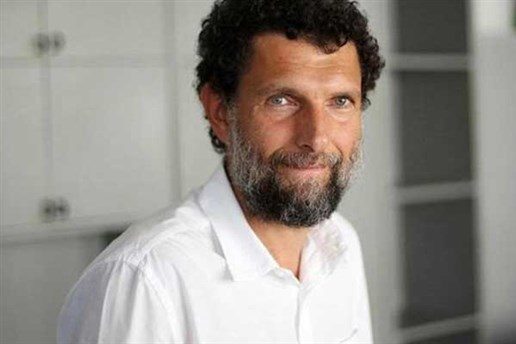A new bogus indictment against human rights defender and businessman, Osman Kavala, and US academic, Henri Barkey, for allegedly spying and attempting to overthrow Turkey’s constitutional order is politically motivated and bereft of legal credibility, Human Rights Watch and the ICJ said today.
The indictment, alleging the two were involved in the July 15, 2016, attempted military coup, demonstrates Turkey’s blatant refusal to abide by a European Court of Human Rights judgment, finalized in May 2020, which ordered Kavala’s release, and not only prolongs ongoing violations of his rights but gives rise to new ones.
An Istanbul court on October 8 accepted the indictment and has scheduled a first trial hearing against Kavala, who was been in Istanbul’s Silivri Prison since November 2017, and Barkey, who lives in the US, for December 18.
“The new case against Osman Kavala and Henri Barkey demonstrates the Turkish authorities’ flagrant misuse of the courts for political ends and their fundamental disregard for the basic principles of criminal justice,” said Hugh Williamson, Europe and Central Asia director at Human Rights Watch.
“Defying the European Court of Human Rights order to release Kavala has confirmed the Court’s conclusion that Turkey is using detention and prosecution to silence a human rights defender.”
The 64-page prosecutor’s indictment, dated September 28, accuses Kavala and Barkey of “securing for purposes of political or military espionage information that should be kept confidential for reasons relating to the security or domestic or foreign policy interests of the state” (under Turkish Penal Code article 328), punishable with up to 20 years in prison, and “attempting through force and violence to overthrow the constitutional order of the Republic of Turkey or introduce a different order or prevent this order” (article 309), punishable with life in prison without parole.
The indictment recycles unsubstantiated accusations, which previously circulated in the pro-government Turkish media, that Kavala and Barkey were involved in espionage and in the 2016 attempted military coup. The indictment provides no credible evidence linking them with any criminal activities. (Further details about the content of the indictment are provided below.)
In a December 2019 judgment, which became final on May 11, the European Court of Human Rights ruled that the evidence on which Kavala was detained for the Gezi protests and the 2016 coup attempt was insufficient and agreed that Kavala’s detention and the charges against him “pursued an ulterior purpose, namely to silence him as a human rights defender.”
On September 3, the Council of Europe Committee of Ministers, acting in its supervisory capacity for the implementation of European Court judgments, issued a decision ordering the Turkish government to ensure Kavala’s release, pointing to “a strong presumption that his current detention is a continuation of the violations found by the Court.”
On September 29, pro-government media reported that the Istanbul prosecutor’s office had prepared the new indictment against Kavala and Barkey. On the same day, Turkey’s Constitutional Court postponed its review of Kavala’s application regarding the legality of his continuing detention, which had been scheduled for that day.
On October 1, the Council of Europe Committee of Ministers issued a second decision calling on Turkey to ensure Kavala’s immediate release, expressing “deep concern that the applicant has still not been released” and announcing that an interim resolution would be issued at the Committee of Ministers’ December 1-3 session if Kavala had not yet been released.
“Turkey is bound by the ruling from European Court to free Kavala immediately, and the ruling covers his detention under the latest case against him,” said Roisin Pillay, director of the ICJ Europe and Central Asia Programme.
“The new indictment presents no new grounds to justify his detention, and it is imperative that Turkey ends the persecution campaign against him by releasing him and dropping all charges.”
For more Human Rights Watch reporting on Turkey, please visit:
http://www.hrw.org/europecentral-asia/turkey
For more ICJ work on Turkey, please visit:
https://www.icj.org/search/?fwp_search=Turkey&submit=Search
Contact
Massimo Frigo, Senior Legal Adviser, ICJ Europe and Central Asia Programme, t: +41-22-979-3800; e: massimo.frigo(a)icj.org
Turkey-Kavala case-News-press release-2020-ENG (story with additional information, in PDF)





